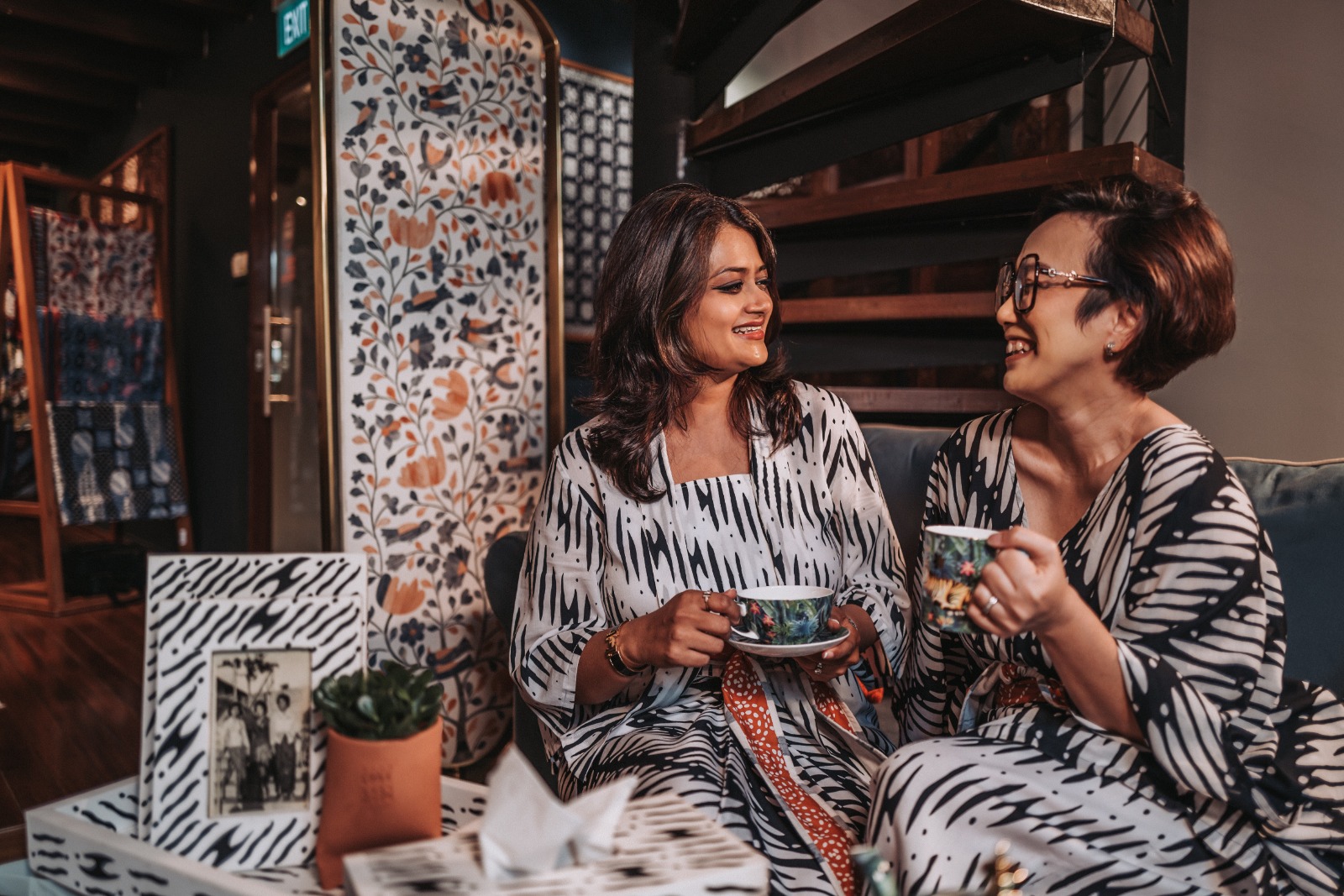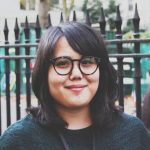Top image: Filan Pearson
Waiting for the next mildly-racist-very-racist-is-it-even-racist uproar in Singapore? You know you never have to wait long in Singapore. This time, the baddie is the founder of the local brand Ong Shunmugam (OS), Priscilla Shunmugam. The offended: everyone, it seems. And the one seemingly eating the popcorn and stirring the pot? Bertha Henson—but we’ll save that for later.
We’re familiar with how it plays out. In incidents such as this, it’s often going to be a messy rollout. The 101: person makes a problematic statement, the public reacts, more people respond to reactions, person making problematic response gives a non-apology, people react again! Often, there will be a lot of apologies being made and unwarranted reactions happening at the same time. How does it end? The same as always—to agree to disagree until the next fresh controversy comes about.
So why is everyone so angry? At the core of it, Singapore has one big problem. We all hate to agree on what privilege is, who wields it and how it affects minority communities.
It reflects the lack of spaces and real opportunities for us to have honest conversations and dialogue with people from other races. How then should we move on from this constructively and reasonably, or if we should even move on? And how do we hold people accountable for what they say or put out there for public scrutiny?
The webinar that started it all
On September 16 2021, the Asian Civilisations Museum (ACM) held a webinar on “designing Singapore’s contemporary fashion identity”, where Priscilla Shunmugam was a speaker.
It was then she uttered the damning words: “Chinese women have progressed significantly faster and further as compared to their Malay and Indian counterparts” when answering a question by journalist Weiqi Yap.
The entire snippet can be seen here. She went on to include even more problematic observations like “doing research” that showed the “simple reality” was that Chinese women “can be more receptive” and that it has always been that way since the 1960s.
The video was posted on Facebook on the ACM page (but has since been removed), and not without reaction either. Writer and researcher Faris Joraimi was quick to call her out, with neither ACM nor Priscilla Shunmugam replying.
The issue took a little nap—for six months.
In early March 2022, Oniatta Effendi, the founder of local brand Baju by Oniatta, was invited to speak at the Malay Heritage Centre on the baju kurung Teluk Belangah. She had also been present at the ACM webinar in September but felt it was not her place to hijack the talk to correct Priscilla Shunmugam.
Still, Oniatta addressed the issue in her talk about the baju kurung by playing a voice note from the webinar.
“I would describe the audience reaction as one of shock—a display of dismay. Heads were shaking, hands covering mouth and head. I had transcribed the text, so some were reading. After the talk, many people came up to me to personally express how they felt,” Oniatta shared.
Days later, on March 23, Instagram account @kebaya.societe shared the same video on its platform, criticising Priscilla Shunmugam’s choice of words. The account owner said that “Progressive is a mental state of mind—not physical” and that this false narrative about what “progressive” means for Malay women is misinformed.
As expected, the comments and the video snippet were circulated and led to almost everyone weighing in. Still, we can all agree that the general reaction is disbelief and anger.
Explaining the outrage and anger
Firstly, yes, people should be angry. As a Malay woman, I am outraged. The very idea that Chinese women are considered to be more progressive than Malay and Indian women on the basis that they were the first to shake hands with men, the first to adopt “Western dressing”, and were allowed to be in the workforce without the shackles of community, all under the guise of research, is grossly inaccurate.
What Priscilla Shunmugam put out is also poisonous. It feeds existing harmful stereotypes of Malay and Indian women and their communities. It is also ignorant and classist of her to make such sweeping statements knowing that it would cause unhappiness and anger.
“Her ideas of progression require us to adopt Western benchmarks. There’s also her absurd representation of shackled Malay and Indian women refusing to shake hands with men. I wouldn’t even call it “clumsy”. It was reckless,” Oniatta said, referring to Priscilla Shunmugam’s late apology.
Kebaya.societe also weighed in: “I believe people should be angry. And I do believe many were angry for so many reasons because her statement is problematic on many levels. Racism aside, I find it sexist as it undermines the progress made by other women who do not fit into her definition of progress.”
“Why do women need the presence of a man to progress? Many Malay and Indian women have progressed and in their own ways at that without shaking hands with men. Setting Western culture as an indicator of progress is a colonialist mindset,” they added.
You don’t have to be a feminist to see that Priscilla Shunmugam’s statement undervalues women’s progress. “Pitting women against each other is anything but empowering; it’s regressive. And women—and I say all women—should be insulted by what was said,” kebaya.societe shared.
On top of Priscilla Shunmugam’s choice of words, people also felt angry that ACM, who hosted the talk, failed to call out the statement when they could.
“Many felt their voices to be too small and feared retaliation or the repercussions of calling her out. Others felt that it was not their place for different reasons, which I understand and respect,” kebaya.societe justified. Still, when we fail to address ignorance, we are complicit in allowing inequality to persist.
And it really comes down to one thing: privilege. Here is a woman with all the resources and access to be in a better or a more well-informed place yet fall prey to lazy rhetorics. All ignorance comes from a place of privilege, and that is something Priscilla Shunmugam needs to rectify herself. Using privilege for good is demanding more of ourselves and delivering more for others.
A cautionary tale about accountability
The real elephant in the room is why it took so long for things to blow up. It was only after the overwhelming backlash on social media that a wave of apologies was made.
First to step up to the podium was ACM director Kennie Ting, who said they could have been more rigorous in moderating and managing the webinar and that the museum has learned a very important lesson.
He added that the moderator felt it was difficult to react in a live setting and acknowledged that the response should have been dealt with swiftly. Not much later, Priscilla Shunmugam followed up with her own apology and said she admitted her words were “clumsy, hurtful, and insensitive”, and “uncharacteristic” of the narratives championed in her work.
Still, some felt that the apologies were very touch-and-go and did nothing to help hurt parties move forward from the debacle in the public-facing sense.
“The seminar had taken place six months ago. There were comments left on the said video that had demanded an explanation for what was said during the Q&A. There was no way that the parties involved had not noticed,” says Oniatta.
“If you unpack Weiqi Yap’s question, it is about diversity. And so it’s sad when the response to a very good question has revealed these gravely mistaken conceptions that are now out in the open.”
Being in the lifestyle media industry myself, I’ve known of Ong Shunmugam since the brand first launched. I, too, was intrigued by her designs and her efforts to update the style and silhouettes of traditional clothing—and without formal design qualifications.
In fact, I applied to be a Research Associate for the brand when she had started working more with the batik fabric. Although, from the interview, I understood that it was more of a general assistant role she was looking for and thus did not pursue the position further. But still, as a lifestyle writer, I kept tabs on the brand and its progress.
I fully grasp the power of social media when pushing out a brand, and, to be fair, OS is very active on the platform. But as the brand grew, a few posts and interviews made me question her intention, choice of words, and, ultimately, ignorance.
Using terms like “blasting our way out of tokenism” while using minority women to prove a point and using prints of brown women on her fabric when she still believes from her research that we aren’t progressive are just some instances that did not sit well with me. There would be many more if you were to do a quick browse on the OS account.
We should be supporting our local makers and talents, but we can also urge them to listen and do better and be better.
No place for shitstirrers (and then there’s Bertha)
While offence can be taken about the statements, that should not be used as an excuse to limit the need for dialogue and discourse.
Still, for someone like Bertha Henson to come into the mix and share an article about the debacle with a gaslighting statement of her own—and without watching the video—was a thoughtless and irresponsible thing to do.
Bertha is a veteran journalist. She is also a public figure and an author of a couple of books. By now, we all know how she feels about the ‘woke’ crowd and how she abhors that word. But Bertha fails to realise that this debacle is beyond fevered dreams of ‘wokeness’. Surely, someone like her should know that her words would be scrutinised by many and lapped up by her supporters.
To put it plainly, her words have the power to resonate and even educate to a certain degree. Instead, she admitted she hadn’t watched the video and, worse still, left comments saying people were being too sensitive or too “woke” when she could have channelled the discussion to be a constructive and productive one.
What she brought to the table instead? Bad poetry. Twice.
She’s all too aware that a statement like that, left on her Facebook wall, makes for perfect fodder for a foolishly critical audience. Yet, she allowed the comment section to go wild with more hurtful and explicitly racist commentary, with hardly any effort to step in and calm tempers. That shitshow is all on her.
So what’s next?
Honestly, we’re all tired.
Some days, I think we can’t change what people want to believe and say about elitism, privilege, and racism. Other days I wonder if the onus is on us to educate and change their minds.
Oniatta is hopeful about the future, though. “It’s a good time to start talking about issues that are usually deemed sensitive or difficult for public discussion,” she says. To do this, we need to put aside our pride. We need to embrace a complete and intersectional view of inequality. Only when we permit ourselves to be equal parts vigilant and vulnerable can we model the kind of honest self-reflection we hope to see across our society.
We all have the same access to resources to learn about what Malay and Indian women were up to in the 60s, how Hari Raya Haji is different from Hari Raya Aidilfitri, or if minority women had to ask permission from their fathers, brothers, and husbands to work.
But what we can change is how we uphold our own community, so when the next incident happens, we’re ready to get angry in solidarity in response to their ignorance. After all, privilege is like someone wielding a knife, the one pointing it will never feel the sharpness of the blade. It is the one on the other side who will.







